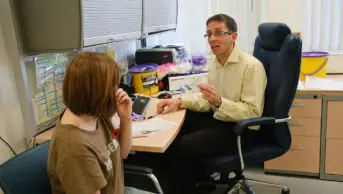The global system for discovering new cancer drugs is failing to turn scientific advances into innovative new medicines, Paul Workman, interim chief executive of The Institute of Cancer Research in London has warned.
Speaking at the World Oncology Forum in Lugano, Switzerland on 24–25 October 2014, Workman said that big leaps in cancer treatment were now possible but making them required concerted action by governments, pharmaceutical companies and other stakeholders to fix a system that was “failing to take the risks needed”.
Drugs were available for only 5% of the 500 known cancer targets, he said, because the overall ‘ecosystem’ of pharmaceutical companies, academic institutions, government and regulators was far too risk averse, mostly tending to work in the same areas of research and producing ‘me too’ drugs, rather than genuinely innovative medicines.
“There have been some impressive advances in the personalised treatment of cancer, but overall progress has failed to keep pace with the dramatic advances over the last 20 years in our knowledge about cancer biology and genetics. We could, and should, be doing much better,” he said.


